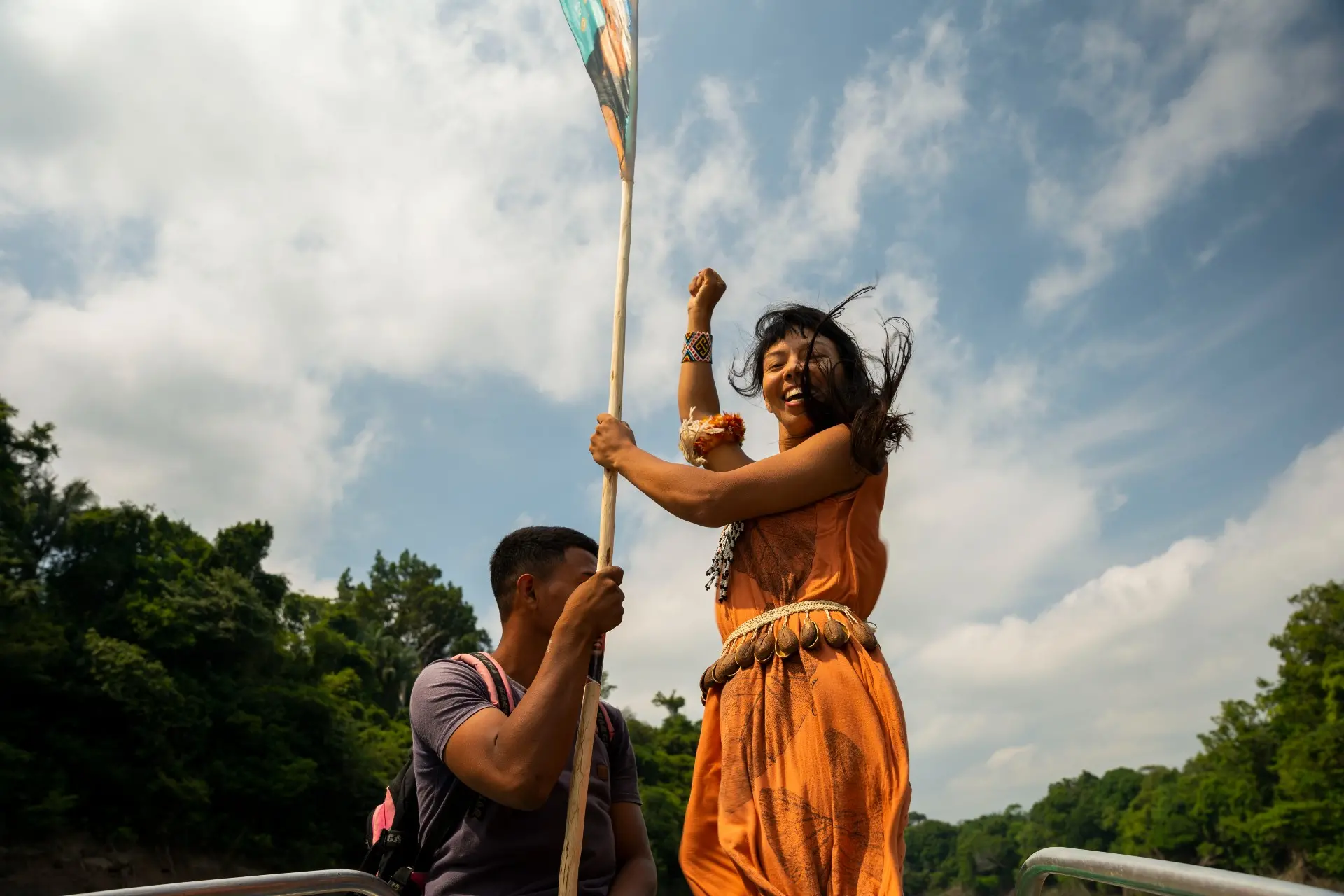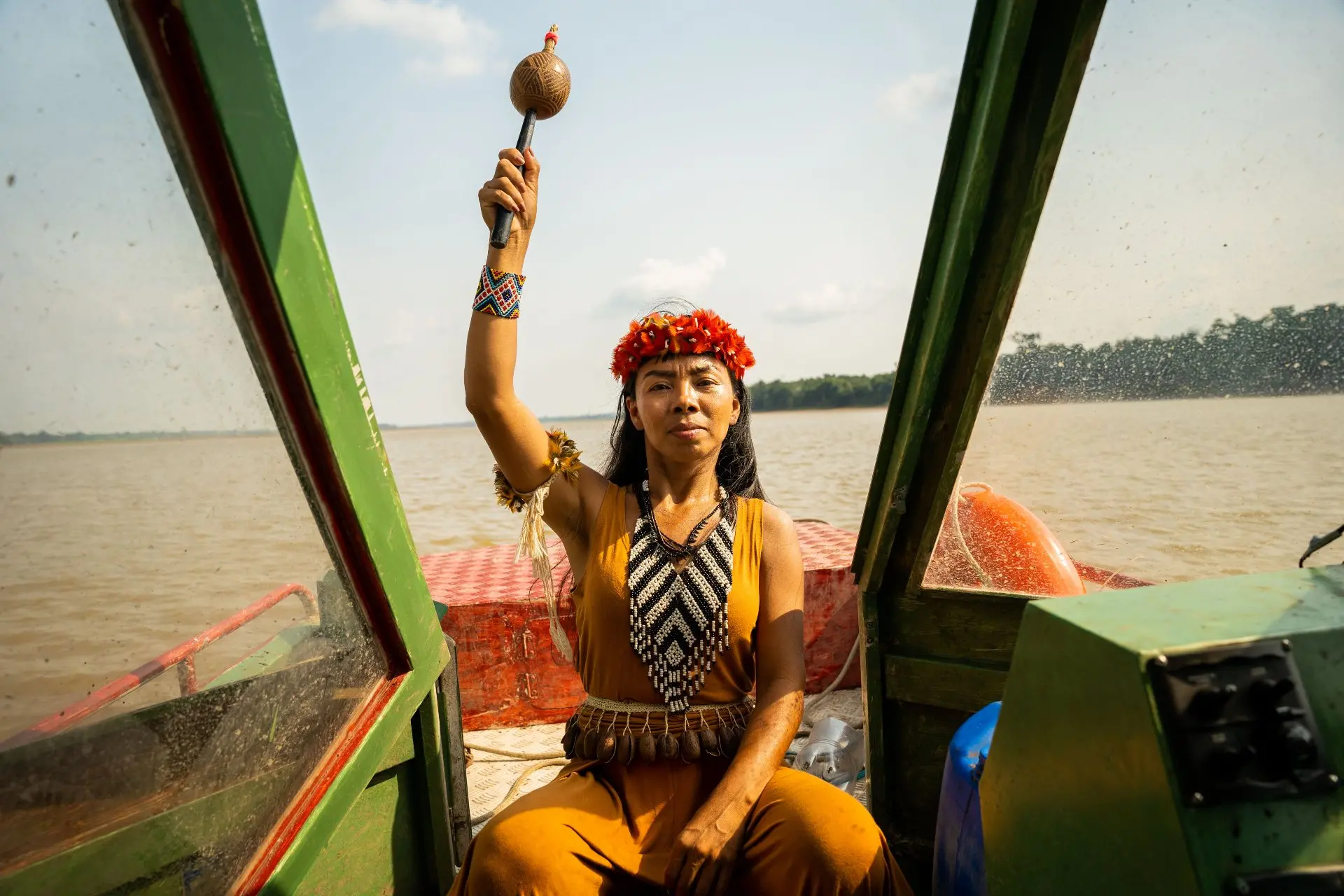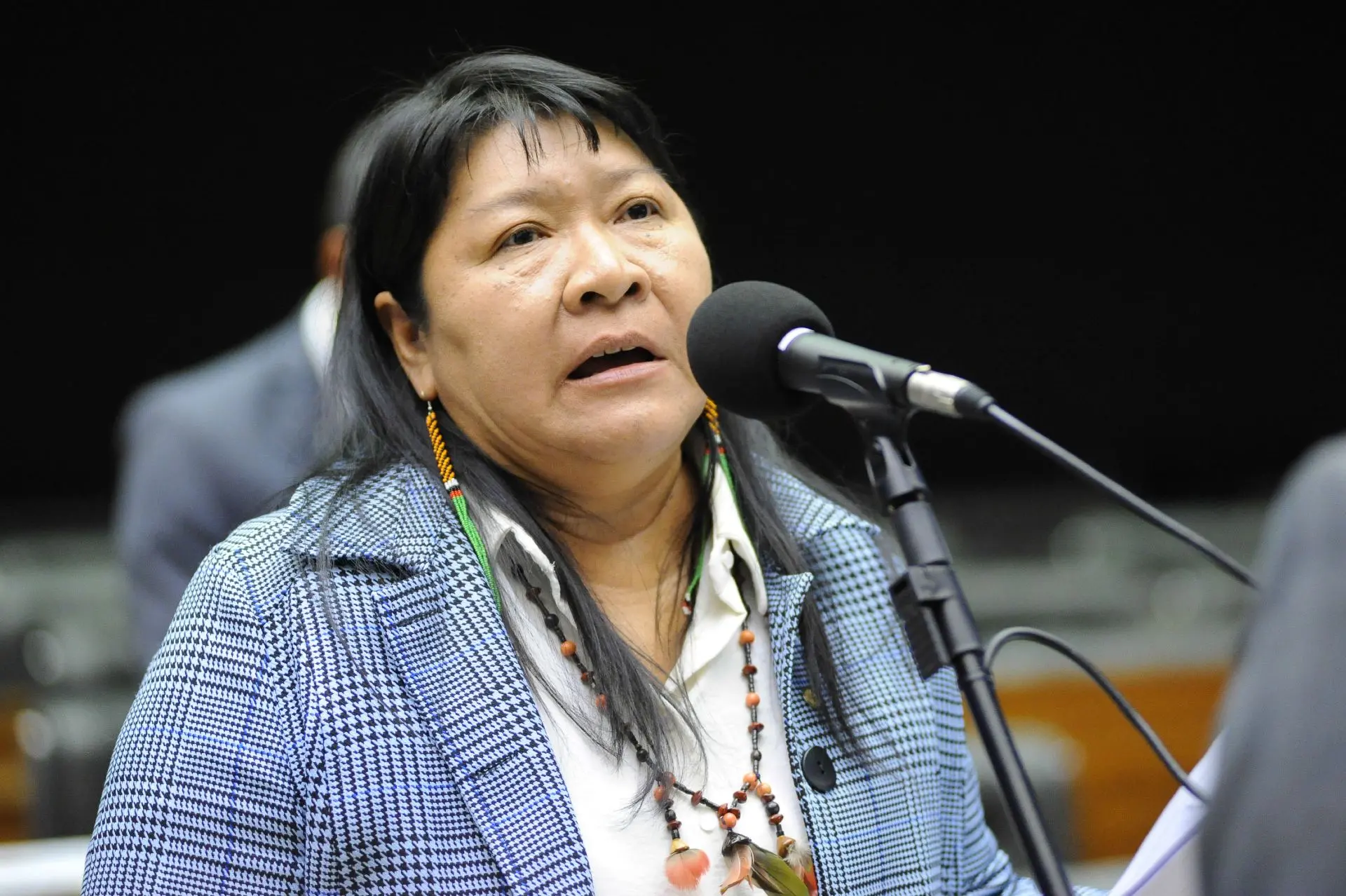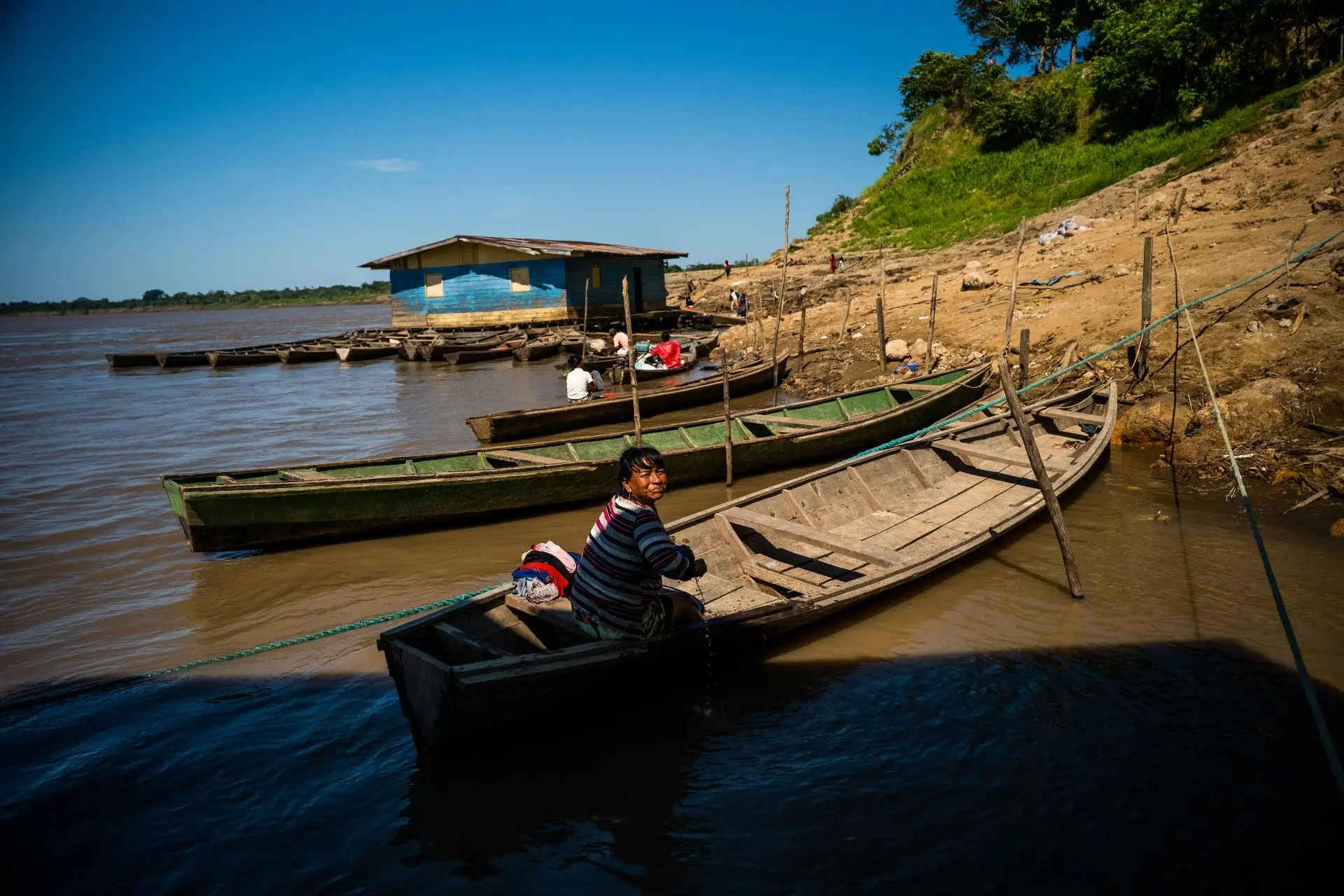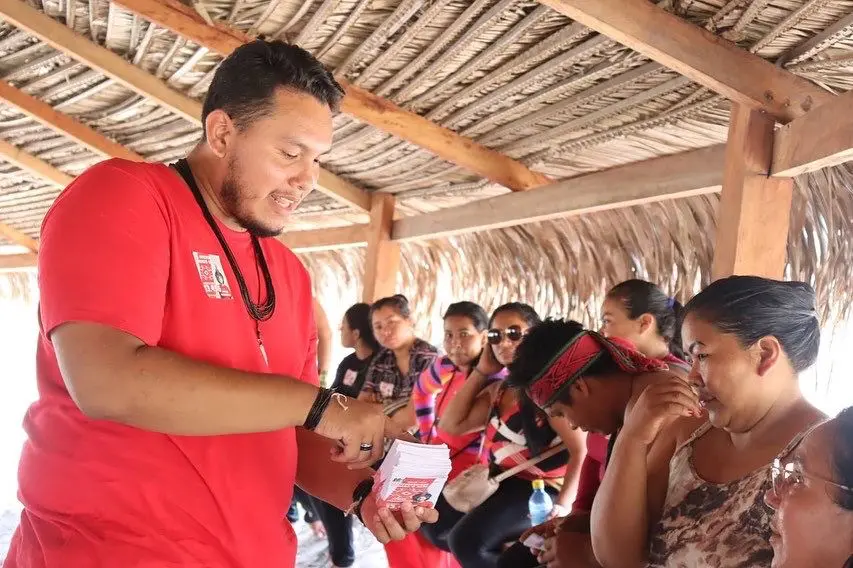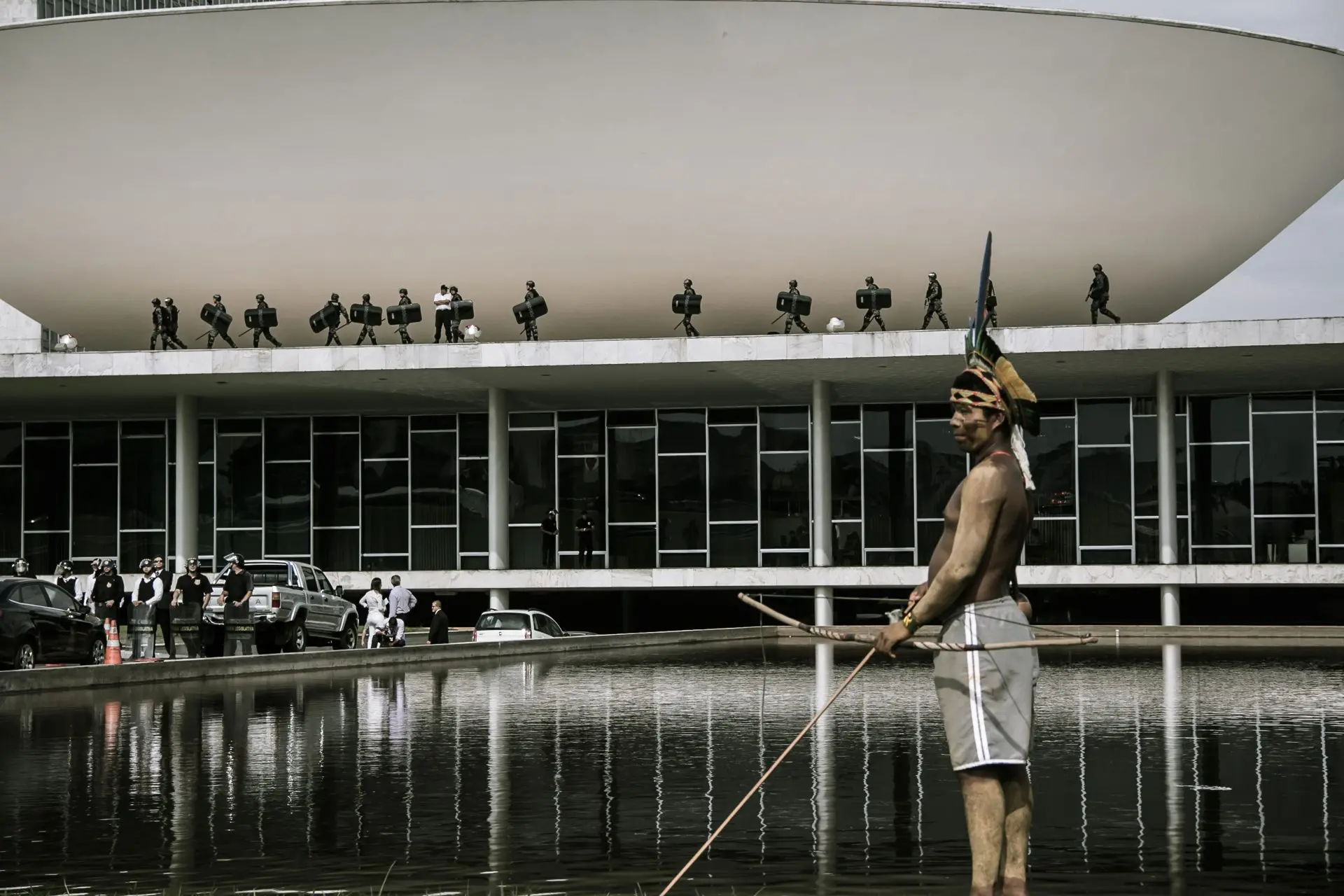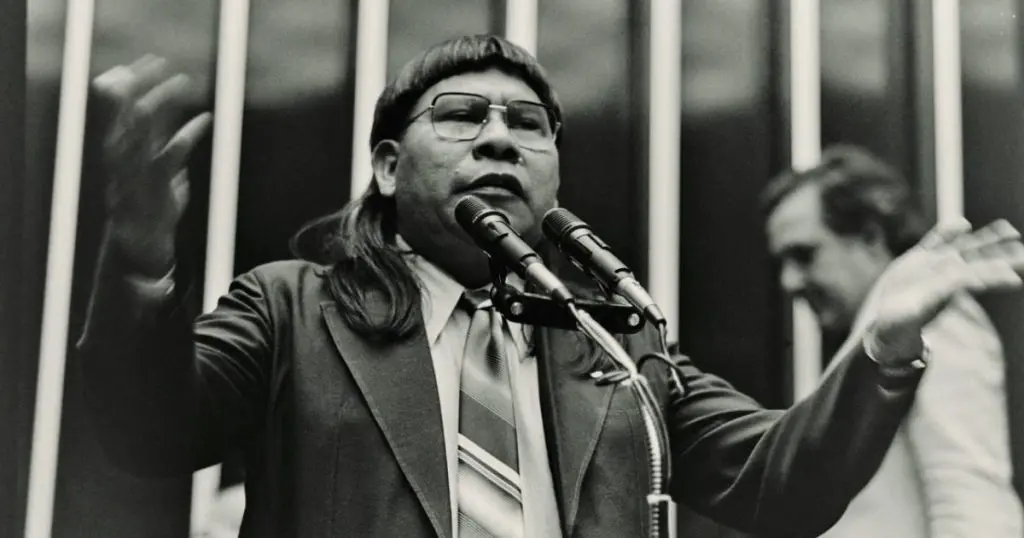This story excerpt was translated from Portuguese. To read the original story in full, visit Repórter Brasil. You may also view the original story on the Rainforest Journalism Fund website here. Our website is available in English, Spanish, bahasa Indonesia, French, and Portuguese.
The number of indigenous candidates has more than doubled since 2014, but campaigns face difficulties; the legacies of Mário Juruna and Joenia Wapichana demonstrate the importance of increasing the representation of native peoples in Congress.
Expensive travel with complicated logistics, insufficient money, target voters with little access to information and the ballot box, and the influence of evangelical churches in the villages. If the number of indigenous candidates broke a record in this year's elections, with an increase of 119% since 2014, the challenges faced by them in the Amazon indicate that the path to greater representation in the Legislative is still arduous.
One of the main problems pointed out by Amazonian indigenous candidates heard by Repórter Brasil concerns the insufficient resources for campaigning, especially considering the high costs involved in travel in the world's largest rainforest.
Vanda Witoto (Rede-AM), a representative of the Witoto people who is running for federal deputy in the state of Amazonas, declared to the TSE that she has R$ 1.16 million available for her campaign. Apparently high, the figure represents only half the average amount of R$2.23 million of the state deputies seeking re-election this year, according to calculations by Repórter Brasil.

As a nonprofit journalism organization, we depend on your support to fund journalism covering underreported issues around the world. Donate any amount today to become a Pulitzer Center Champion and receive exclusive benefits!
